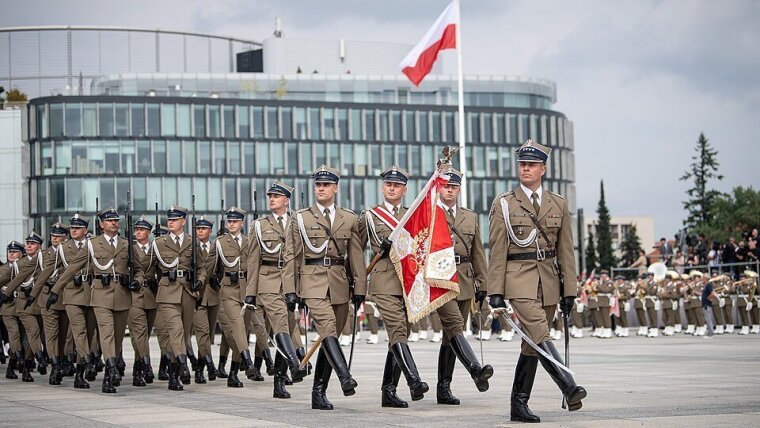
Veranstaltungseckdaten
- Beginn
- Ende
- Veranstaltungsarten
- Gastvortrag
- Ort
-
Seminargebäude
Carl-Zeiss-Str. 3, SR 113
07743 Jena
Google Maps – LageplanExterner Link - Livestream
- Zum LivestreamExterner Link en
- Es referiert
- Prof. Dr. Artur Gruszczak
- Organisiert von
-
Aleksander-Brückner-Zentrum für Polenstudien
-
Lehrstuhl für Internationale Beziehungen des Instituts für Politikwissenschaft
- Veranstaltungssprache
- Englisch
- Veranstaltungswebseite
- Mehr erfahrenExterner Link
- Barrierefreier Zugang
- ja
- Öffentlich
- ja
The prospect of transformations in the security structures on the European continent, accelerated by Russia’s full-scale military invasion of Ukraine in February 2022, gives rise to a number of challenges and tasks confronting Poland as a state directly exposed to the risks and threats stemming from the aggressive policies of the Russian Federation. As a beneficiary of the cooperative security system built by NATO and the EU, Poland faces a threefold challenge:
(1) developing the capacity for deterrence and defence in the event of armed aggression by the Russian Federation;
(2) maintaining strong ties with the United States, regardless of the revisionist and antagonistic policies pursued by the Trump administration towards traditional allies in Europe; and
(3) making a constructive contribution to the efforts of European states to base their individual and collective security on their own autonomous resources and capabilities.
The national security model adopted by the Polish state in response to the transformation of the European security environment is determined by the militarisation of geopolitics, understood as the projection of military potential onto political decision-making mechanisms within a given geographical setting. Since the outbreak of the full-scale war in Ukraine, the Polish state has grounded its security strategy and policy in the intensive construction, expansion and modernisation of its national defence system. The aspect of militarisation is being used to construct a reference framework for other European states – as well as for the European Union itself – which are facing the critical choice of a new variant of national and international security. In this context, Poland expresses the ambition to assume the role of a European security entrepreneur, promoting militarised geopolitics as a formula for managing the risks and threats to the security of the EU and its member states.
Prof. Dr. Artur Gruszczak is professor of social sciences, head of the Department of National Security at the Jagiellonian University, and lecturer at the Centre International de Formation Européenne in Nice. He deals with issues of security, European integration and migration in the Visegrad countries.
Welcome: Prof. Dr. Ruprecht von Waldenfels (Aleksander Brückner Centre for Polish Studies, Jena)
Moderator: Sung Jin Park (Department for Political Science, Jena)